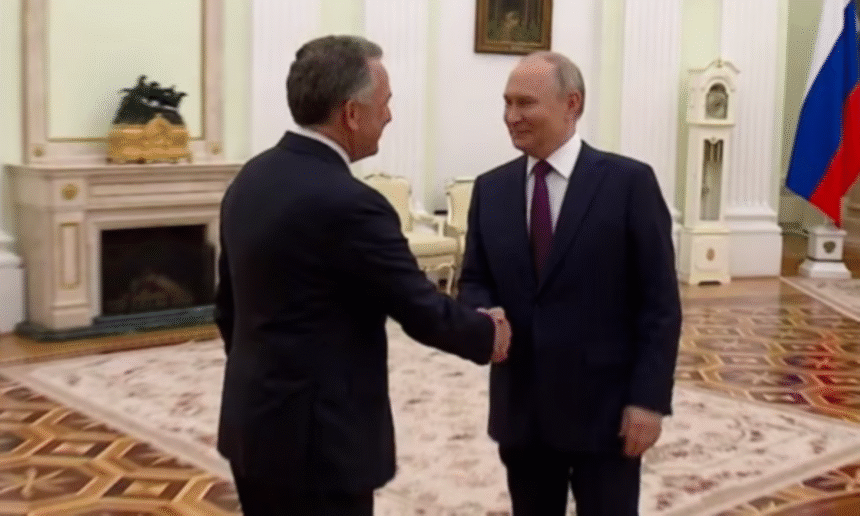Russian President Vladimir Putin held productive talks with Steve Witkoff, a representative from the White House, regarding key issues like Ukraine. According to Kremlin advisor Yuri Ushakov, the discussions on April 25th lasted more than three hours and helped bring the U.S. and Russia closer on several international matters.
However, no statement has yet been made by Witkoff or other U.S. officials about the meeting’s outcome. These talks come as President Donald Trump stated in an interview that “Crimea will remain with Russia.” The timing is significant as the Trump administration seeks to bring an end to Russia’s 38-month war in Ukraine with a peace proposal that could drastically shift U.S. policy: recognizing Moscow’s claim to Crimea, which was annexed by Russia in 2014.
Ushakov described the talks as “constructive” and focused on resuming direct negotiations between Russia and Ukraine. The status of Crimea was expected to be a key discussion point, though it remains unconfirmed whether it was directly addressed during the meeting.
Trump’s proposal represents a major shift, as the U.S. has historically rejected Russia’s claim to Crimea, a stance upheld even during Trump’s first administration. The plan calls for legal recognition of Russia’s control over the peninsula, which would be a significant win for Putin and a blow to Ukrainian President Volodymyr Zelensky, who has been adamant that Crimea remains part of Ukraine.
Trump also suggested that if Ukraine truly wanted Crimea, they should have fought for it back in 2014 when Russia took control. He further commented that “the people in Crimea mostly speak Russian,” echoing Moscow’s stance on the region’s historical ties to Russia.
The U.S. plan also envisions blocking Ukraine’s NATO membership ambitions and recognizing the Russian-controlled territories in Donetsk, Luhansk, Kherson, and Zaporizhzhia. Additionally, the plan proposes a return of the Zaporizhzhia nuclear plant to Ukrainian administration under U.S. management and ensuring Ukraine’s access to the Dnieper River.
Ukrainian analyst Oleksandr Khara criticized the plan, pointing out that it offers almost nothing for Ukraine and that Russia’s inability to conquer all of Ukraine proves a long-term lack of military success.







